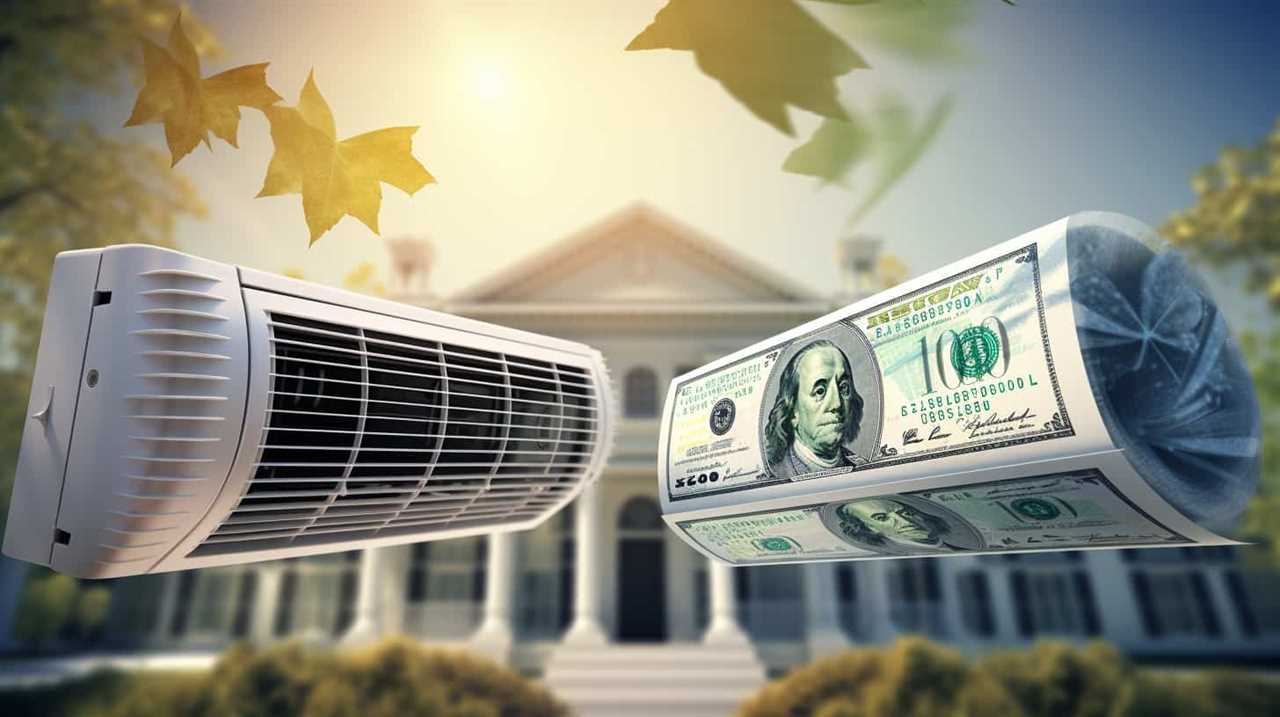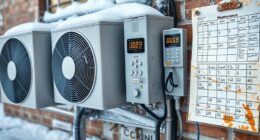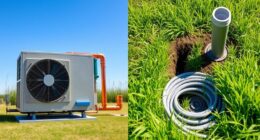Are you interested in learning more about the mysteries surrounding heat pump energy efficiency ratings? Don’t worry, we have all the information you need!
In this article, we’ll dive into the fascinating world of deciphering these ratings. We’ll unravel the secrets of SEER and HSPF ratings, explore the factors that affect energy efficiency, and compare different heat pump models.
Plus, we’ll share some handy tips for maximizing energy efficiency in your own heat pump system.
Get ready to unravel the enigma of heat pump energy efficiency!
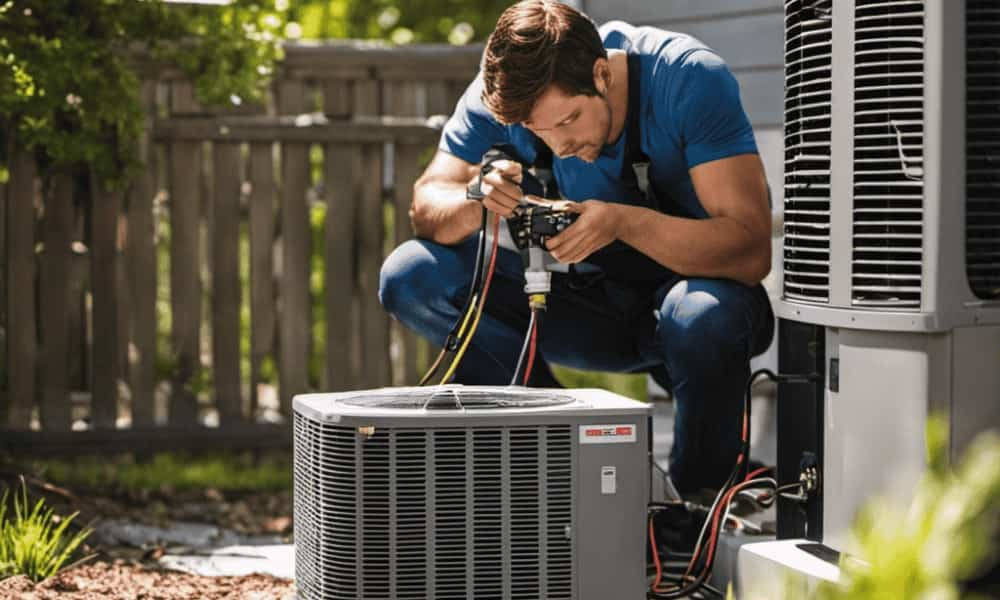
Key Takeaways
- Energy efficiency ratings, such as SEER and HSPF, are crucial for choosing a heat pump that saves energy and meets government regulations.
- Higher SEER and HSPF ratings indicate better efficiency, lower energy consumption, and reduced utility bills.
- Factors such as proper installation, regular maintenance, appropriate sizing, and external factors like temperature and insulation quality impact energy efficiency.
- Comparing energy efficiency ratings helps determine the most cost-effective and energy-efficient heat pump model.
The Importance of Energy Efficiency Ratings in Heat Pumps
When it comes to heat pumps, understanding and considering energy efficiency ratings is crucial for us. We want to make sure we invest in a system that not only provides us with the benefits of heat pumps for energy savings but also meets the requirements set by government regulations.
Energy efficiency ratings, such as the Seasonal Energy Efficiency Ratio (SEER) and Heating Seasonal Performance Factor (HSPF), give us a clear indication of how well a heat pump can convert electricity into heating or cooling output. Higher ratings mean better efficiency and lower energy consumption, leading to reduced utility bills and environmental impact.
Government regulations play a vital role in promoting energy efficiency in heat pumps by setting minimum standards and encouraging manufacturers to develop more advanced and eco-friendly technologies.
Understanding SEER and HSPF Ratings for Heat Pumps
Our understanding of SEER (Seasonal Energy Efficiency Ratio) and HSPF (Heating Seasonal Performance Factor) ratings is key to determining the energy efficiency of heat pumps. These ratings serve as important heat pump performance indicators, allowing us to interpret energy efficiency ratings and make informed decisions about the most suitable heat pump for our needs.

SEER measures the cooling efficiency of a heat pump and is calculated by dividing the cooling output by the energy input over an entire cooling season. The higher the SEER rating, the more efficient the heat pump is at cooling.
On the other hand, HSPF measures the heating efficiency of a heat pump and is calculated by dividing the heat output by the energy input over an entire heating season. A higher HSPF rating indicates a more efficient heat pump at heating.
Understanding these ratings is crucial for homeowners looking to maximize energy savings and reduce their carbon footprint.
Now that we have a grasp of SEER and HSPF ratings, let’s delve into the factors that affect heat pump energy efficiency.

Factors Affecting Heat Pump Energy Efficiency
Some of the key factors that can affect the energy efficiency of heat pumps include proper installation, regular maintenance, and appropriate sizing of the unit. Taking care of these factors is crucial to ensure optimal performance and energy savings. Here are some important considerations:
-
Proper Installation: A correctly installed heat pump will operate efficiently and effectively. Improper installation can lead to air leaks, poor airflow, and decreased energy efficiency.
-
Regular Maintenance: Regular heat pump maintenance is essential for optimal energy efficiency. This includes cleaning or replacing filters, checking refrigerant levels, and inspecting electrical connections. Regular maintenance helps to identify and address any issues before they escalate and impact energy efficiency.
-
Appropriate Sizing: Choosing the right size heat pump for your space is vital. An undersized unit will struggle to heat or cool your home efficiently, while an oversized unit can lead to short cycling, wasting energy. Proper sizing ensures optimal energy efficiency and comfort.

Comparing Energy Efficiency Ratings of Different Heat Pump Models
How do we compare the energy efficiency ratings of different heat pump models?
When evaluating cost effectiveness and analyzing long term savings, it’s crucial to consider the energy efficiency ratings of different heat pump models.
The rating to look for is the Seasonal Energy Efficiency Ratio (SEER) for cooling and Heating Seasonal Performance Factor (HSPF) for heating.
These ratings provide an indication of how efficiently the heat pump operates throughout the year.

A higher SEER and HSPF rating means greater energy efficiency and potential long-term savings on energy bills.
It’s important to compare the SEER and HSPF ratings of different models to determine which heat pump will offer the most cost-effective and energy-efficient solution for your specific needs.
Tips for Maximizing Energy Efficiency in Heat Pump Systems
To maximize energy efficiency in heat pump systems, we can implement several tips and techniques. Here are some practical strategies to consider:
-
Regular maintenance: Schedule annual maintenance for your heat pump system to ensure it operates at its peak performance. This includes cleaning or replacing filters, inspecting ductwork, and lubricating moving parts.

-
Optimal thermostat settings: Set your thermostat to the most energy-efficient temperature for each season. Consider using programmable or smart thermostats to automatically adjust temperatures based on your schedule.
-
Proper insulation: Insulate your home properly to minimize heat loss during winter and heat gain during summer. This helps reduce the workload on your heat pump, resulting in lower energy consumption.
Frequently Asked Questions
Are Heat Pump Energy Efficiency Ratings Standardized Across Different Countries?
Yes, heat pump energy efficiency ratings can vary across different countries. International heat pump energy efficiency standards differ, making a comparison of heat pump energy efficiency standards necessary to ensure accurate and meaningful analysis.
How Do Heat Pump Energy Efficiency Ratings Affect the Overall Cost of Operating a Heat Pump System?
Heat pump energy efficiency ratings have a significant impact on the overall cost of operating a system. Higher ratings result in lower energy consumption, leading to long-term savings and environmental benefits.
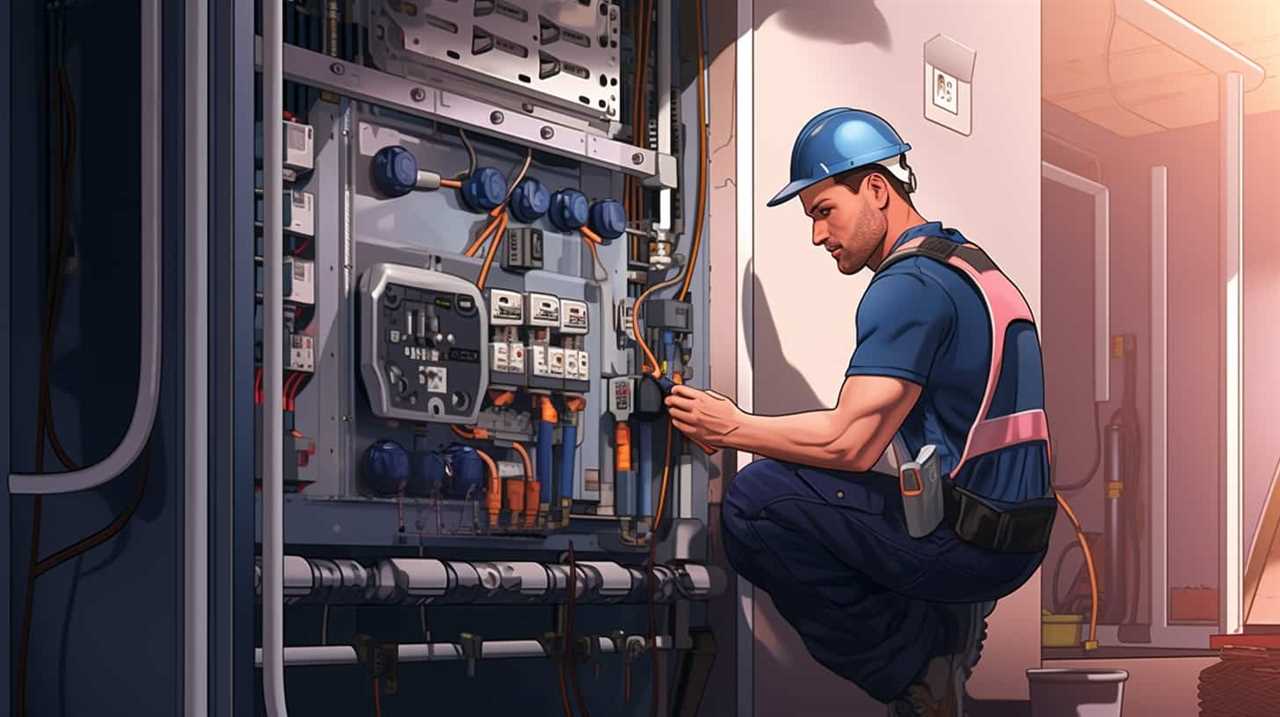
Can I Rely Solely on the Energy Efficiency Ratings to Determine the Performance of a Heat Pump?
We can’t rely solely on energy efficiency ratings to determine a heat pump’s performance. While they provide insight, factors like reliability and long-term savings are crucial in evaluating overall effectiveness.
What Are the Potential Drawbacks of Choosing a Heat Pump With a Higher Energy Efficiency Rating?
When considering a heat pump with a higher energy efficiency rating, potential drawbacks may include increased upfront costs, more complex installation and maintenance requirements, and the need for additional equipment or modifications to existing systems.
Are There Any Additional Factors to Consider When Comparing the Energy Efficiency Ratings of Heat Pump Models?
When comparing energy efficiency ratings of heat pump models, there are additional factors and comparison considerations. These include installation costs, maintenance requirements, warranty coverage, and the availability of qualified technicians for service and repairs.
Conclusion
In conclusion, the energy efficiency ratings of heat pumps are absolutely crucial for ensuring optimal performance and cost savings.
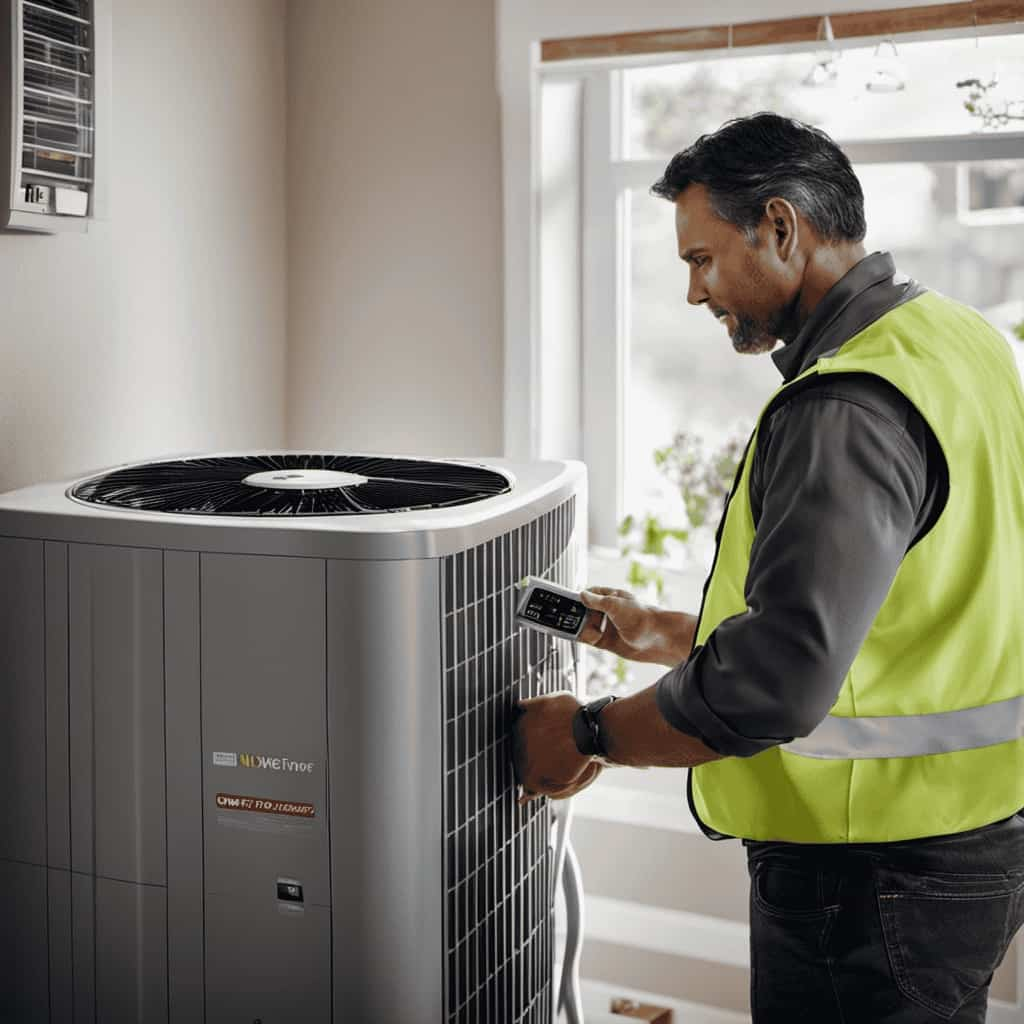
These ratings, such as SEER and HSPF, provide valuable information about a heat pump’s ability to efficiently convert energy into heat or cool air. By understanding and comparing these ratings, consumers can make informed decisions when selecting a heat pump model.
Additionally, implementing energy-saving practices can further enhance the overall energy efficiency of heat pump systems. So, let’s not underestimate the significance of energy efficiency ratings in maximizing the efficiency of heat pumps!




